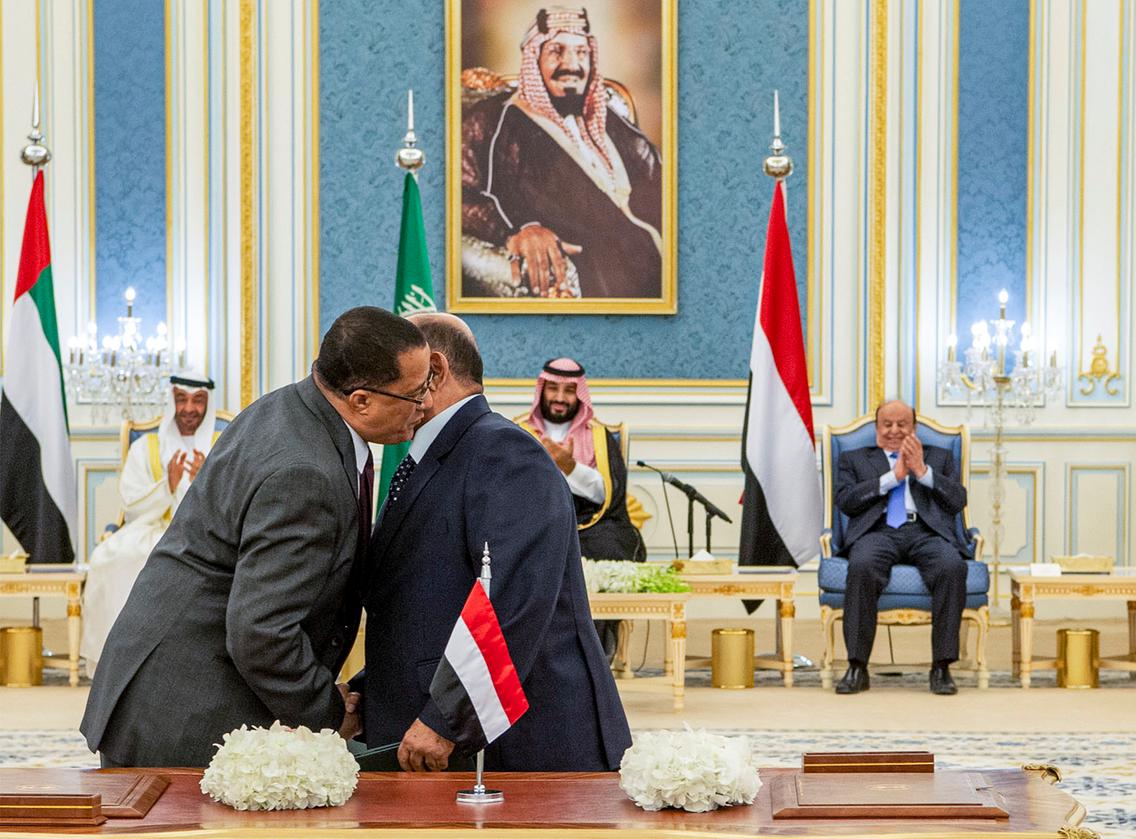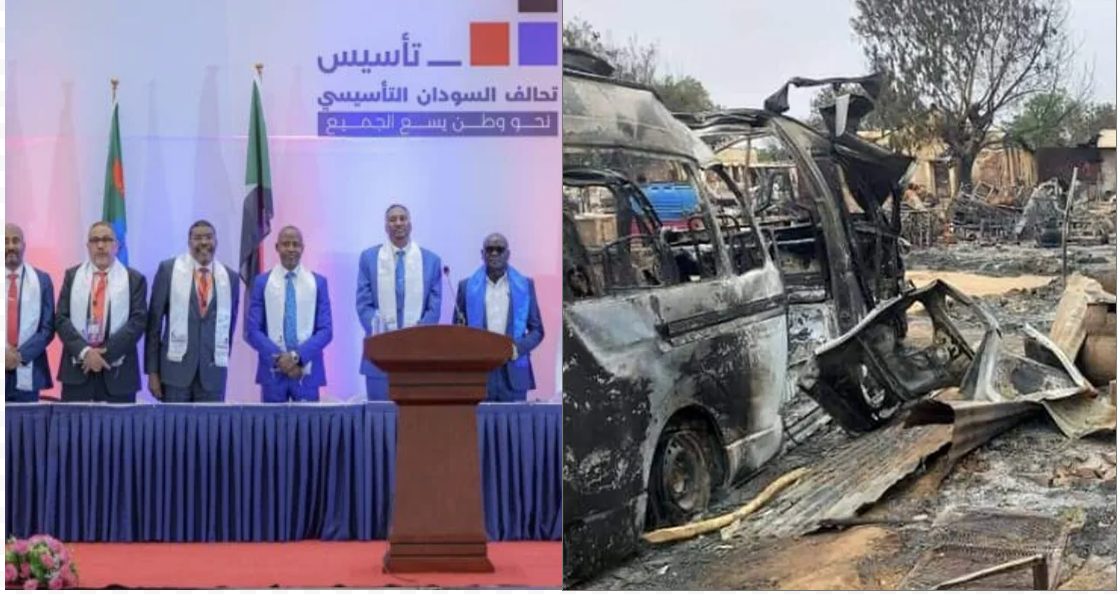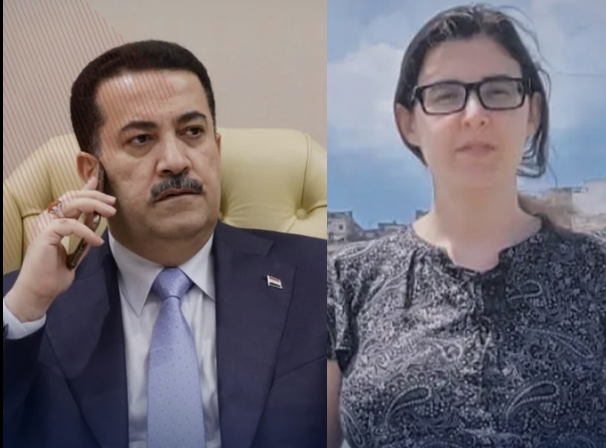
Briefs
Briefs
STC Gains Highlight the Need for a Succession Plan for President Hadi
Brian M. Perkins
Representatives from the Southern Transitional Council (STC) met with Yemeni Prime Minister Maeen Abdulmalik Saeed in Riyadh on August 13 to discuss the creation of a new government that will form the basis of a power-sharing agreement. The formation of a new government aims to revive the implementation of the Riyadh Agreement, which stalled again after the STC declared self-rule over southern governorates in April (Arab News, August 14). The declaration was followed by deadly clashes between STC forces and those aligned with Yemeni President Abdrabbuh Mansur Hadi. The power sharing agreement, as well as the fact that Hadi left his exile in Saudi Arabia before the meeting was held to receive medical treatment in the United States, serves as evidence of the Yemeni government’s loss of legitimacy and control over key political outcomes, as well as the need to find a successor (Middle East Monitor, August 12).
President Hadi’s legitimacy as the country’s leader has been tenuous since the GCC initiative first led to his appointment in 2012, which eventually saw him controversially overrule the outcomes of the National Dialogue Conference—one of the key catalysts of the ongoing war. These facts alone are enough to point to Hadi being unviable as Yemen’s president, but a string of political missteps since the war began, such as firing his well respected Vice President Khaled Bahah and the rise of the UAE-backed Southern Transitional Council, serve as further evidence that maintaining Hadi as the leader while attempting to wind down the war is entirely untenable. Equally as untenable is moving past Hadi to his controversial Vice President and Islah figurehead, Ali Mohsen al-Ahmar.
The STC, while not universally popular across southern Yemen, has managed to leverage its UAE-trained forces and large, strategically located support base to dictate political settlements with the Yemeni government. The STC has not accomplished this all at once, but through the aggregation of marginal gains, providing enough resistance to force the government’s hand but not so much that it provokes an enduring, larger scale conflict—at least not yet—that could push its Emirati backers into a decision between them and Riyadh.
The new power sharing agreement being discussed in Riyadh highlights these marginal gains and the steady erosion of Hadi’s government. Government representation is expected to be split between north and south, and STC Secretary General Ahmed Hamid Lamlas from Shabwa was appointed governor of Aden. STC General Mohammad Ahmed Salim al-Hamedi was selected as Aden’s head of security, a significant departure from the previous agreement that would have seen the STC lose some military authority in the city (Aden Press, July 29). These appointments further solidify the STC’s powerbase in the country’s temporary capital and position the group to be a primary political voice in any future political settlement.
Any legitimacy that Hadi has left comes primarily from outside of Yemen and with every gain made by the STC, the Hadi government’s legitimacy recedes. Adding the 74-year-old Hadi’s documented heart condition to the situation and the need for a succession plan becomes even more imperative. If the Saudi coalition and international community ever hope to facilitate a fruitful political settlement, they will likely need to take the risk of identifying Hadi’s successor or successors who can take the reins before the transition ever even begins. Hadi’s track record with the National Dialogue Conference does not bode well for what has become an even more complex and fragmented political scene. Simply moving down the government hierarchy is also an untenable plan, not only due to Ali Mohsen being both the Houthi and STC’s nemesis, but also because it would likely be viewed as repeating the same mistakes that led to Hadi’s ascension through the GCC initiative. The best hope for a settlement is for Hadi’s successor to be a politically representative council or a central figure who is a relatively consensus choice that could carry the country through the transition. The latter is particularly elusive.
***
Germany Plot Underscores the Role of Tajiks in Islamic State
Brian M. Perkins
Albania transferred a Tajik Islamic State (IS) cell member to Germany on August 4, following his arrest in Tirana on April 29. The suspect, identified as 24-year-old Tajikistani citizen Komron Zukhurov, was arrested under an international warrant issued by a federal court in Karlsruhe, Germany on April 21 on charges of helping to establish an IS cell in Germany. Zuhurov’s arrest and extradition to Germany highlights the emerging role of Tajik IS members in Germany and in official IS provinces, raising questions regarding IS facilitator networks in Albania and other Balkan states.
Two weeks prior to Zukhurov’s arrest in Tirana, German law enforcement arrested four other Tajikistanis, identified as Azizjon B., Muhammadali G., Farhodshoh K., and Sunatullokh K., from the same cell in North Rhine-Westphalia for reportedly joining IS in 2019 and for plotting attacks on U.S. military facilities in Germany (Generalbundesanwaltschaft, April 15). A fifth suspect from the cell, identified as 30-year-old Tajikistani national Ravsan B., was already in custody following his arrest on March 15, 2019.
Zukhurov had reportedly been previously extradited to Tajikistan by the European Union before the other members of the cell were arrested. It is unclear how or when he left custody in Tajikistan, but his lawyer in Albania claimed he had been tortured by Tajikistani authorities before he managed to travel to Tirana on February 17 to stay with family.
In addition to Zukhurov being arrested in Albania, the cell undoubtedly had deeper connections to the country as evidenced by their failed attempt to finance the plot in Germany in which they accepted a $40,000 contract to kill an Albanian businessman. At least two of the members of the cell, including Ravsan B., travelled to Albania to carry out the killing, but reportedly returned to Germany upon the plot’s failure. The cell’s contacts in Albania and whether Zukhurov helped facilitate the contract killing plot remain unclear.
The cell, however, was reportedly in contact with influential IS members in Afghanistan and Syria. Their Tajikistani nationality potentially offers some clues as to who their IS handlers might have been and highlights the role that some Tajik IS fighters have played in facilitating attacks in Europe.
Several Tajikistani nationals have risen through the IS ranks to become both highly influential leaders or recruiters. Most notably, Tajikistan national Sayvaly Shafiev became an influential leader and Shura council member of Islamic State-Khorasan (IS-K), reportedly commanding upward of 200 men from Tajikistan, Uzbekistan, and other Central Asian and Balkan countries (UN, July 15, 2019). Shafiev has also been heavily engaged in recruitment and has reportedly trained fighters in Afghanistan before sending them back to Tajikistan and further afield to create sleeper cells. It is within reason to suspect that Shafiev or someone within his core network could have been coordinating with the cell in Germany. A high number of Tajiks have also played significant roles within IS in Syria, but one individual particularly worth noting given the plot in Germany is Parviz Saidrahmonov, a.k.a. Abu Daoud. Saidrahmonov, who reportedly went missing from a prison in Afrin in June after being imprisoned in December 2019, is a notorious IS recruiter wanted for facilitating terrorist attacks committed by other Tajiks in Sweden, Russia, and Tajikistan (RFE/RL, December 18, 2019).
While it is impossible to speculate who the cell’s IS handlers were, both Shafiev and Saidrahmonov underscore the roles Tajikistanis have played within the IS structure as well as the roles they have played in facilitating attacks or sleeper cells using Tajiks outside their respective provinces. Komron Zukhurov’s arrest in Albania and the cell’s failed assassination plot there raise further questions as to its connections in Albania and the extent of IS facilitator networks within the country and the greater Balkan region, particularly at a time when many Balkan states are beginning to repatriate IS fighters from prisons in Syria.


